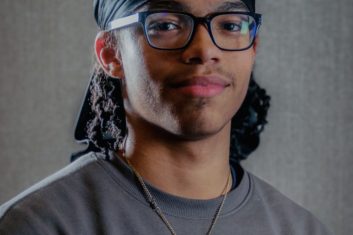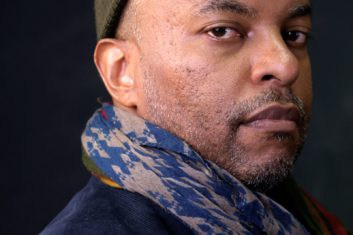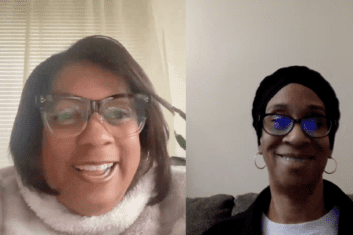As a young person, I always felt like school buildings belonged to me. I felt comfortable in them, like I understood the protocols and structures. I was familiar with the same clocks used in every school across the country, the height of the chalkboards, the familiar cafeteria food smell. I knew it well.
Now that I’m 25, things have changed and I didn’t realize it until I set foot into PS 132 Juan Pablo Duarte in Washington Heights where I was to do my internship. Especially with the rise of violence in schools, I felt like an outsider, infringing upon this little world. I felt paranoid about behaving incorrectly or sending a wrong message. I had to use the bathroom, but I decided not to for fear I would end up in the wrong bathroom or I would get in trouble. I suddenly didn’t know where I belonged in this world as an adult. I became unsure of how to behave so as not to be a threat in this fragile world of vulnerable little people.
The clock in the hallway didn’t work and was stuck on 2:05. Students wandered between classrooms casually by themselves. The teachers filed by and mostly just ignored me. They spoke mainly in Spanish, with one classroom door’s sign saying “Today we speak ________ “ and filled in the blank with English or Spanish. I was suddenly conscious of my own mostly monolingual-ness.
A little girl came up to me in the hallway, introduced herself as Kayla, and immediately wanted to know if I was here for their special arts class. I told her I would be observing. She grabbed my hand and tried to bring me into the classroom, but the class didn’t start for another 15 minutes. I explained to Kayla that I would join soon. She giggled and tried to get me to come now. I laughed and refused until she finally went into her classroom. I had been told that the kids would want to jump all over me, but I didn’t realize how right they had been until that moment. Kayla immediately wanted to play and be physical and affectionate. Most significantly, she trusted me right off the bat when she really had no idea who I was. It was so startling after living in New York City for three years. I found myself unsure of how to even respond.
When the class finally did start, I sat in the back and observed my mentors teach. When asked to think of characters for a group poem they would write, most of the suggestions were for aliens or robots — supernatural comic-book types of things. I caught myself rolling my eyes a little about aliens and robots, thinking about the whole breadth of human experience that there was to be explored that didn’t come out of Star Wars.
But as the poem developed and I turned it over in my mind. It slowly became not so eye-roll-worth. Realizing that this was a very integral part of the breadth of human experience, I reflected on how it feels and what it means to be alien to a place or a people or a culture. I reflected on how each of us feels alien in some way to someone or someplace. The word grew in my mind to take on new meaning as I reflected on the school I was teaching in and the current political climate.
As the poem was underway, I noticed Kayla wander back into the classroom. I had not even noticed her leave. Her face was red, she was crying. She sat down at her desk and dropped her face in her arms. She didn’t look up for most of the rest of class. My heart ached for her, remembering that these are the fragile simple moments of childhood that can teach us lasting lessons. I do not know what had transpired or where she had returned from, but I did understand the pain and embarrassment and shame she was feeling.
No one talked to Kayla or looked at her. I wondered if this happened often. The class continued on around her as if nothing was happening. She didn’t participate for the remainder of the time.
It raised a few questions for me. How do you balance the needs of each individual child? How do you nurture growth and safety when you have only so many boundaries you’re able to cross and only so much time? How do we prevent these societal structures, put in place for the protection of students and teachers, from making us alien to one another?
How do we facilitate transmuting the unhealthy, and often downright cruel, messages and pressures of an outside world into stories, art, and empowerment? How we do help each little one feel a little less alien each day; to themselves, to their family, and most importantly; to the world at large?
-Eli Pauley, TATIP Trainee, Theatre Artist



